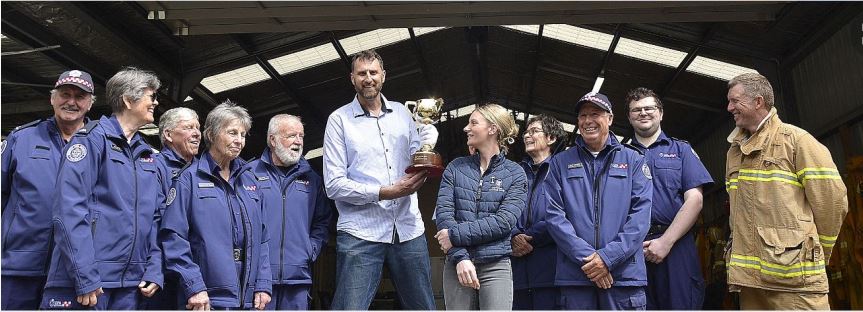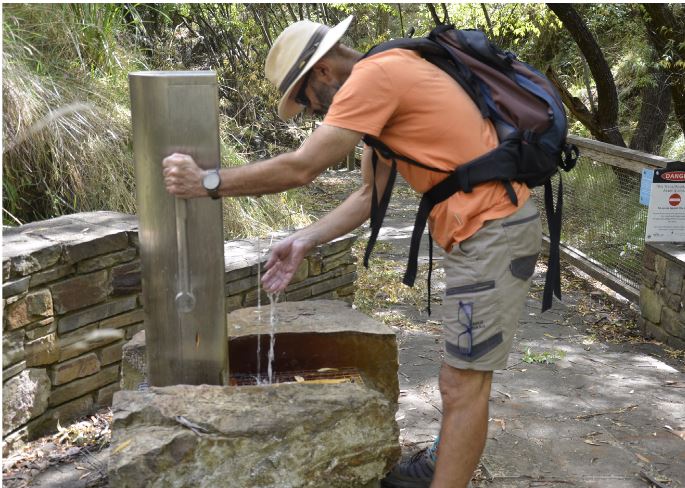December 13th, 2022Trip intentions form may save your life: police warn
If you plan to go bush this summer season, then filling out a trip intentions form might just save your life, Victoria Police say.
They’re advising that a trip intentions form should be completed and left with a reliable friend, family member or responsible authority. The contact person you nominate can raise the alarm if you haven’t returned and/or contacted them by the time indicated on the form.
More information about filling in a trip intentions form to help ensure you come back if you go bush – and things don’t quite go as planned – is available from the Victoria Police website.
This includes ensuring you research your trip using a current map and advice from experienced walkers and local authorities and that you understand the environment you are entering and risks associated with it.
“Plan for the unexpected,” Victoria Police say.
They also say that more useful advice on how to safely plan a wilderness our great outdoors adventure is available from:
Other areas to check off include:
Water
- always carry sufficient water for trip – day and overnight trips
- carry more water than you will need, plan for emergencies
- stay hydrated and do not rely on creeks unless you have reliable information
Food
- carry sufficient for trip and pack extra in case of emergencies
Clothing
- dress for conditions, bring extra and have wet weather clothing available
- always have enough to cover you for the worst-case scenario
- weather conditions in wilderness environments are sometime unpredictable
Equipment
Always have a map and compass. GPS and mobile phones help but they do not replace experience.
Bushwalking clubs are a good way to advance your experience and knowledge.
Weather
Always check a current weather report but do not rely on it, plan for worst-case scenario by carrying extra food, water, clothing and equipment.
Suggested equipment list
- suitable backpack
- map (current) and compass – GPS (extra batteries) learn how to use before leaving on trip
- headlamp, spare batteries and bulb
- whistle
- correct clothing – seek advice outdoor stores, bushwalking clubs
- extra clothing
- extra food and water
- have correct footwear – wear in before long bushwalks
- waterproof matches and container
- candle/fire starter
- pocketknife
- first aid kit – individual and group
- tent or bivvy bag
- large rubbish bag for emergency shelter and keeping equipment dry in you pack
- Note book and pencil
- sunglasses/sun hat/sunscreen
- mobile phone – Be aware it will not always have coverage
- Emergency Position Indicating Beacon EPIRB 406
Common factors which contribute to persons being lost
- planning, lack of planning or no planning of trip
- terrain, hazards such as cliffs, rivers which may delay or cause injury
- weather, poor weather in area of search, hypothermia or hyperthermia
- equipment, poor equipment – failure of or inappropriate for area
- ability, over confidant – skill ability not proven for particular terrain
- decision-making, lack of leadership within party – leading to poor decisions. Once lost walking in one direction believing they will come across civilization eventually
- fatigue, leading to poor decisions or injury
- physical ability, poor physical condition
- lack of food or water, contributing to fatigue and poor decision making
- medical, preexisting or accident during trip
- technology, over reliance in technology EG GPS flat batteries / mobile phones – no coverage
- underestimating route, causing delay and/or unable to identify terrain hazards
- no map / compass, contributing to disorientation of person/s
What to do if you become lost
- stop and think
- stay calm
- recheck navigation and map
- re-track steps a short distance may assist. Locate your last known point if possible
- gain some height may assist in orientation
- if above does not help STAY WHERE YOU ARE
- find shelter stay warm and dry
- attempt to make your position visible to searchers land and air. For example, fire or bright clothing in open area that can be seen by air searchers
- if you are in a group stay together, never separate
- be aware it can take a considerable time for rescuers to reach you so your priority is to remain warm and dry, ration your food and water if necessary.










